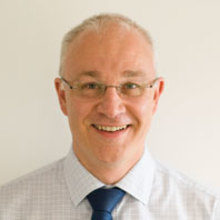From the Chief Executive
Issue: Why Microbiology Matters
05 May 2020 article

This is a special year for the Microbiology Society as we celebrate our 75th anniversary. Unfortunately, our plans to celebrate have been knocked off course by a microbe – cancelling Annual Conference because of the spread of the virus that causes COVID-19 was an extremely difficult decision for Council. It underlines why microbiology matters.
At the very first meeting of the Society, on 16 February 1945, the founding President, Alexander Fleming, together with Marjory Stephenson, Muriel Robertson and about 200 others, emphasised the breadth and importance of microbiology. Fleming stressed, “the common links which united the various branches into a whole”. He also set the culture of the Society as a welcoming community.
Although many things have changed, these ideals remain central to the purpose of the Microbiology Society.
From the early days, the Society has aimed to be a strong voice for our membership and the wider microbiology community. Fleming’s inaugural address, for example, included trenchant observations on the organisation of the British university system. This theme also continues strongly in our work. Science Foundation Ireland (SFI), the largest single funder of scientific research in the Republic of Ireland, recently consulted on its future strategy. We surveyed our Irish members, drafted a discussion paper to stimulate debate and held a series of workshops with members in Ireland. The level of engagement from members was extremely high and resulted in our position statement, released earlier in the year. This considers what further steps we can take to ensure that the wider issues of funding microbiology get sufficient attention.
Microbiology deserves more attention because it is important – and this is shown with abundant clarity in our Why Microbiology Matters project. During the anniversary, we are shining a light on the role of and value of microbiologists working to resolve important global issues, and we are generating new content based on your work. We asked you to nominate the discovery or event that best showcases why microbiology matters, and how it affects almost all aspects of our lives. From those submissions, we designed new collections of themed digital material, collating members’ stories in one place for the first time. In this issue of Microbiology Today, we delve further into these areas – to help foster understanding of how microbiology addresses global challenges and to reinforce the importance of the discipline in 2020 and beyond.
Among the content that is brought together in Why Microbiology Matters is of course research published in the Society’s journals. Fleming and the other founders of the Society were frustrated that they could not start a journal straight away, because there was a shortage of paper and restrictions on its use in 1945. But they set up a group at their first meeting to prepare the ground and, within two years, the long tradition of publishing had begun, with the first paper of the first issue of Microbiology being by B. N. Singh of Rothamsted, on Myxobacteria. Things in the field of publishing have changed a great deal since then (we do not use hard copy journals anymore, so paper is no longer important!) but it is still a huge part of the Microbiology Society’s purpose to publish the best research. Our new Publish and Read deal, which gives researchers at participating institutions unlimited fee-free open access publishing in the Society’s titles, is one manifestation of that ongoing commitment to the ideals of our founders.
The response of the Society’s members to Council’s painful decision to cancel this year’s Annual Conference proved to me that the vision of our founders is now an established reality – a strong and diverse community dedicated to using microbiological knowledge for the common good.
It is a great privilege to be working at the Society in its anniversary year, looking back over 75 years, and a great responsibility as we look forward. Annual Conference will be back bigger and better than ever next year!
Peter Cotgreave
Chief Executive
